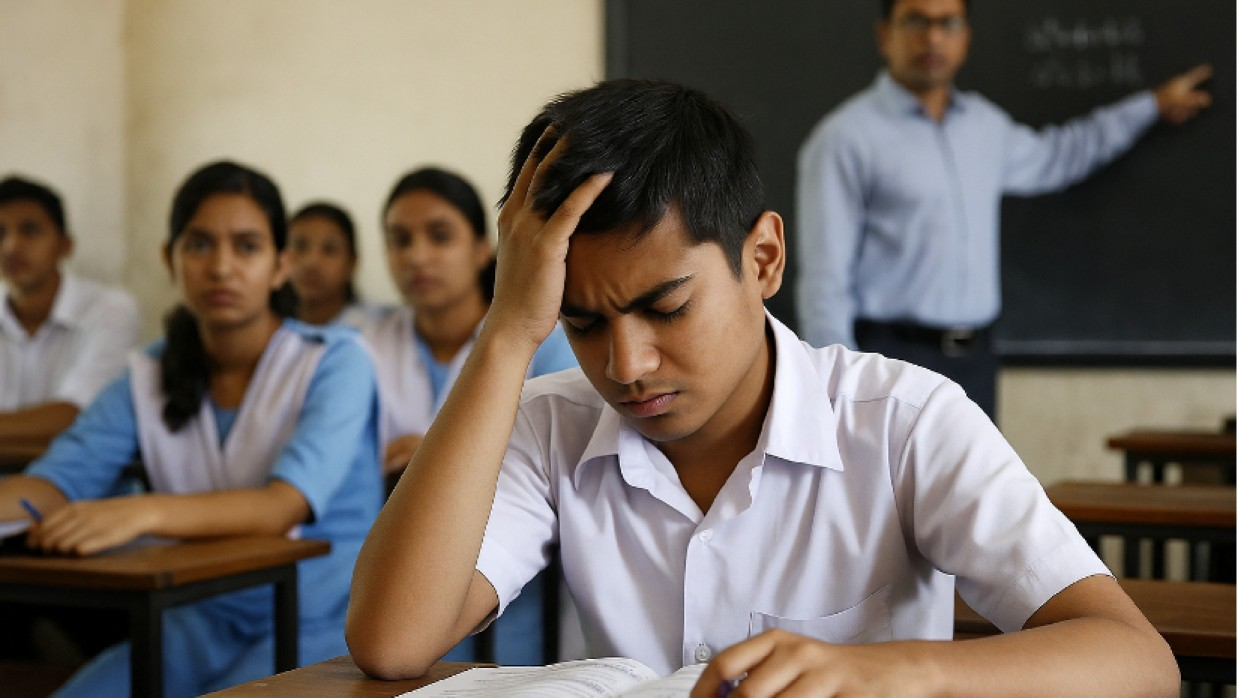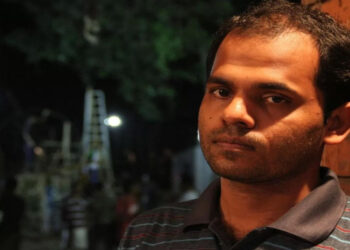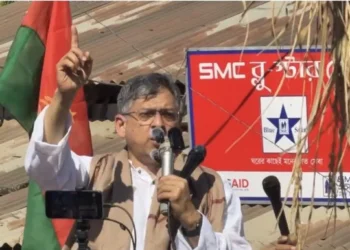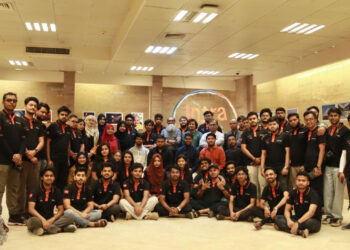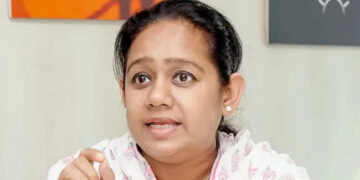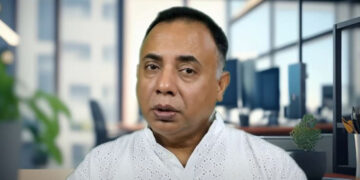A recent World Bank report has raised serious concerns about the quality of education in Bangladesh. It says that although students complete 12 years of formal education up to HSC level, their knowledge and skills are only equal to a 7th-grade student in the international standard. This learning gap is due to poor teaching methods, lack of trained teachers, and overemphasis on rote learning. Experts warn that this gap is not only harming individuals but also creating problems for the economy and the global competitiveness of Bangladesh.
Learning Skills of HSC Graduates Way Below Global Standards
Despite completing 12 years of schooling – 5 years of primary, 5 years of secondary, and 2 years of higher secondary – Bangladeshi students who pass HSC are reportedly performing at the level of a 7th grader in the international system. This gap in learning raises serious questions about the quality of education in the country.
Experts say that students are not gaining the required knowledge and skills as per their class level, which is a major issue for the future of Bangladesh’s youth and its position in the global job market.
World Bank Report Highlights the Alarming Gap
According to a report by the World Bank, a child who finishes formal education up to age 18 is expected to complete around 11 years of schooling globally. However, Bangladeshi students effectively gain the learning equivalent of only 6.5 years. This means the country is lagging behind by 4.5 years in actual learning.
“একটি শিশুর ১৮ বছর বয়সে সাধারণত ১১ বছরের আনুষ্ঠানিক শিক্ষা সম্পন্ন করার কথা। তবে শেখার গুণমান ও দক্ষতা বিবেচনায় বাংলাদেশের শিক্ষার্থীরা মাত্র ৬.৫ বছর সমতুল্য মানসম্পন্ন শিক্ষা অর্জন করতে সক্ষম হচ্ছে।”
“By the age of 18, a child is supposed to complete 11 years of formal education. But based on learning quality, Bangladeshi students only gain the equivalent of 6.5 years.”
Read More: Shocking Impact of 1973 University Ordinance: How It Corrupted Bangladesh’s Higher Education System
Low Performance in Global Test Scores
The World Bank also shared that on an international combined testing scale, Bangladeshi students scored an average of 368, while the score for “advanced achievement” is 625 and the minimum acceptable score is 300. This clearly shows that most students in Bangladesh are struggling with basic skills like reading, writing, and math.
Structural Weakness in the Education System
Education officials admit the problem exists but say that there are challenges due to Bangladesh’s socio-economic conditions. They claim steps are being taken, like improving teacher training and upgrading the syllabus.
“সিলেবাস, মূল্যায়ন পদ্ধতি এবং শিক্ষকদের মানের ঘাটতি রয়েছে। এই জায়গাগুলো উন্নয়নের জন্য সরকার কাজ করছে।”
“There are gaps in the syllabus, assessment system, and teacher quality. The government is working to improve these areas.”
According to experts, the main causes behind this crisis are:
-
Rote learning and guidebook dependency
-
Lack of critical thinking and analytical teaching
-
Untrained or underqualified teachers
-
Focus on passing exams rather than gaining knowledge
Primary Learning Gaps Affect Higher Education
Children are entering secondary education with poor basic knowledge. This weak foundation continues all the way through higher secondary level and affects performance in university admission tests.
“শিখন ঘাটতি নিয়েই তারা উচ্চমাধ্যমিকে যাচ্ছে। ফলে ঘাটতি থেকেই যাচ্ছে।”
“They are entering higher secondary education with learning gaps. So the gap remains.”
Many students, who are HSC graduates can’t qualify for university admission tests, and those who do often struggle to understand written questions, especially in subjects like programming, mathematics, and research.
Poor Quality of Teachers a Major Concern
Professor ASM Amanullah from the National University said:
“প্রাথমিকের শিক্ষকরা শিক্ষকতার বাইরে নানা কাজের সাথে যুক্ত। ফলে সেই কাজগুলো সম্পন্ন করে শিক্ষার্থীদের সঠিক পাঠদান দিতে পারছেন না।”
“Primary school teachers are involved in many tasks outside teaching. So they can’t properly teach students.”
“শিক্ষকদের প্রশিক্ষণের ব্যবস্থা নেই… শিক্ষকদের বেতন বাড়াতে হবে।”
“There is no training for teachers… teacher salaries need to be increased.”
Due to low pay and lack of motivation, many teachers are not giving enough attention to students in classrooms. Moreover, teachers themselves are often poorly trained, especially those who studied at National University, which reportedly has a low standard of education.
Deep Thinking and Real-Life Skills Missing
Experts believe the main problem is that the education system focuses too much on grades and certificates. As a result, students can score well in exams by memorizing, but they fail to apply knowledge in real life.
“আমরা ভালো শিক্ষক নিয়োগ দিতে চাই না… ভালো শিক্ষক না হলে শিক্ষার্থীরা শিখবে কীভাবে?”
“We don’t want to hire good teachers… If there are no good teachers, how will students learn?”
Urban-Rural Divide in Education Quality
Professor Golam Mohiuddin of Chittagong University explained that there is a big difference in the quality of education between urban and rural areas. Students in rural schools suffer from severe learning deficits, which affect the overall national education quality.
“গ্রামাঞ্চলের শিক্ষার্থীদের বড় ধরনের শিখন ঘাটতি রয়ে যাচ্ছে।”
“Students in rural areas have major learning deficits.”
Weak Education Hurts the Economy
Even though Bangladesh has made progress in literacy rates, the poor quality of education is now hurting the economy. A lack of critical thinking, communication, and problem-solving skills is making it hard to create a skilled workforce.
“শিক্ষাগত দুর্বলতা কর্মসংস্থানের ক্ষেত্রে প্রতিযোগিতা হ্রাস করছে এবং দারিদ্র্য বিমোচনের পথেও বড় বাধা তৈরি করছে।”
“Educational weaknesses reduce job competitiveness and create major barriers to poverty reduction.”
Bangladesh Ranks Low in Human Capital Index
The World Bank’s Human Capital Index (HCI) ranked Bangladesh 106th out of 157 countries in 2018. It said that a child born in Bangladesh will grow up to achieve only 48% of their full productivity if the current education and healthcare conditions continue.
What Needs to Change?
Experts are urging for urgent and deep reforms:
-
Focus on analytical and practical learning, not just memorization
-
Train and properly pay teachers to improve classroom teaching
-
Bring changes in the examination system to reflect real knowledge
-
Regularly measure and evaluate the quality of education nationwide
Final Thoughts
Bangladesh needs to invest more in education, not just in building schools but in building minds. Without solving these learning gaps, the country risks falling behind in the global economy, despite its success in poverty reduction and GDP growth.
Source: The Daily Campus

